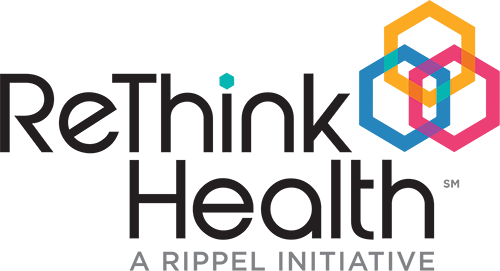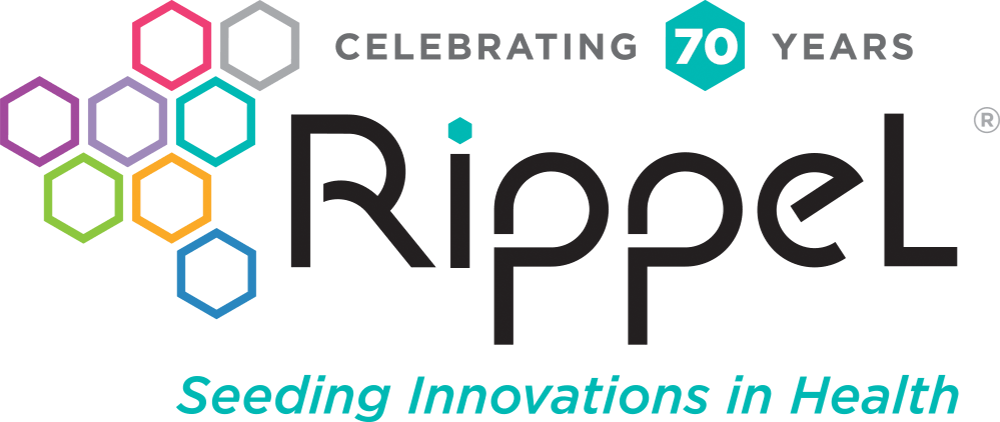ReThink Health’s Portfolio Design for Healthier Regions team is working with stewards in Palm Beach County, Florida, and a three-county region in southeast Michigan to explore what it will take to reallocate resources to create more equitable regional systems for health and well-being. The stewards come from funding organizations willing to work together across boundaries to create the conditions required for change. Their focus is on rethinking how they invest and coordinate resources to shift from urgent services (the kind anyone under adversity would need to temporarily regain or restore their health and well-being) to vital conditions (efforts that not only have the potential to improve health and well-being but also prevent harm and avert the need for urgent services), knowing that as a region’s vital conditions improve, urgent services are less needed and communities are better positioned to thrive. Our previous blogs in this series explored how health philanthropy can cultivate greater interdependence among regional partners and how belonging and civic muscle advance equity Today, Katherine looks at what ReThink Health is learning about what it takes for stewards to drive social change.
The Stew BLOG
How Stewards can Drive Social Change
The Portfolio Design for Healthier Regions project is helping stewards explore their potential to bring about more equitable health and well-being in their regions. One thing is clear: among stewards, it takes a considerable amount of vulnerability and a willingness to push aside assumptions to establish the deep trust and authentic relationships required to drive social change. Stewards are asking themselves and each other, “Is our existing portfolio of investments effective? Are the right organizations delivering the right services? How can we establish a more effective and equitable resource allocation process going forward?”
The stewards who came together in each of the two regions often collaborate in various capacities, attend the same community meetings, and agree that they have their region’s best interests at heart. But, historically, there had been a rigidity in their relationships, with each player adhering to their organization’s strategic plan, budget, and strictly defined role within the community. They had never let down their guards in significant ways to enter truly interdependent relationships. By breaking down silos and fostering mutual understanding and trust, we are learning what it takes for stewards to become bound to one another in the pursuit of equitable health and well-being.
Creating a Container for Trust
Stewards in the Portfolio Design for Healthier Regions project hold powerful influence and significant resources. The project’s broad mix of organizations and sectors include philanthropy, hospitals, local government agencies (spanning county mental health, community and youth services, public health, and a taxing district), and community-based coalitions. Historically, a typical coming together would see these organizations sharing where they are each making progress or perhaps where they might collaborate. Rarely, if ever, had they come together to take a deep, honest look at where they might be going wrong.
Breaking through the inhibitions requires vulnerability, including admitting that things aren’t as good as they could be. We have found that the intimacy and safety of small groups—five stewards in Florida and four in Michigan—create containers where trust can flourish.
“The greatest contribution is everyone being open and honest,” said Tanya Palmer, chief program officer at Children’s Services Council of Palm Beach County. “That ability to be forthcoming in full disclosure and understanding where we each are and acknowledging it—ReThink Health has brought that into the conversation.”
In Michigan, stewards recognize that certain characteristics of the people within the space they have created can help or hurt the process. “A lack of ego helps,” said Reiley Curran, community health improvement manager at St. Joseph Mercy Chelsea in southeast Michigan. “Everyone has come with a genuine desire for the greater good. You have to be tired of the status quo and have an understanding where changes could happen. It’s a curious approach to problem solving to be willing to try something that may not work and move on. Naysayers can hurt the energy in the room.”
For Abby Goodwin, vice president of grants and community investments at Palm Health Foundation, the project allowed her organization to create its own container for leadership to be more open and honest with each other about the foundation’s achievements. “We were able to move past the superficial applause to something much more revealing about the challenges and barriers we’re facing,” she said. “We don’t have a lot of opportunity to share and be vulnerable in meeting settings. The project allowed us to see where internally we were tripping up and helped model how everyone wants to work.”
Accepting Limitations
Goodwin’s story is just one example of how project stewards are becoming more adept at creating intentional, authentic relationships—externally and internally—and acknowledging constraints not as a weakness, but as a place where one steward may not be able to move forward, but another steward can.
Anne Kittendorf, Assistant Professor in the Department of Family Medicine at the University of Michigan Health System, sees her own constraints through a regional portfolio lens and is gaining clarity around how to optimize each steward’s role. “I understand what my own limitations are and how to define what roles people should play when evolving a project,” she said. “Among stewards learning to trust and collaborate with each other, It takes skill to identify the best person or organization to initiate and complete a task. You have to know what your resources are, and how you can best deploy them, within the limitations.”
The open and honest culture cultivated among the stewards also dispelled assumptions they held about each organization’s constraints, decision-making, and motivations. “I was surprised that I was surprised I needed to learn what was really going on,” said Amy Heydlauff, CEO of Michigan’s 5 Healthy Towns Foundation. “Ingrained practices, culture, and politics play a greater role than I was willing to accept.”
Putting Stewardship into Practice
At ReThink Health, we see the value of helping stewards understand why organizations show up in the way they do. They can think differently about their own approaches. They can share openly and honestly the constraints that hold them back. And they can drop their guards to allow other organizations to take risks for or with them. These are the conditions for becoming better stewards of shared resources.
As one example, Kittendorf is using the project learning to change the way she negotiates. “Once I come with an ask, I can use that stewardship mindset to do it in a nuanced way for a better chance of success considering the limited resources we have,” she said.
Being a steward takes practice. It needs to be taught, nurtured, and modeled for others to show what is possible in driving social change. As discussed in the third blog in this series, cultivating belonging and civic muscle help create the connective tissue that allows for true stewardship to take hold. One way to cultivate these capacities is for everyone—community residents and representatives of organizations and institutions—to agree to a set of simple rules that clarify the core values needed to create more equitable regional health systems.
“The most valuable outcome is the idea of redefining ourselves as stewards for change,” said Lauren Zuchman, executive director of BeWellPBC in Palm Beach County. “And how anyone—youth, leaders in big systems, a business owner—can think of themself as a steward of change. It transforms the way you look at your work. Now we are focused on health for all, not health care for some.”
[email protected] On social media, #ThinkWithUs

